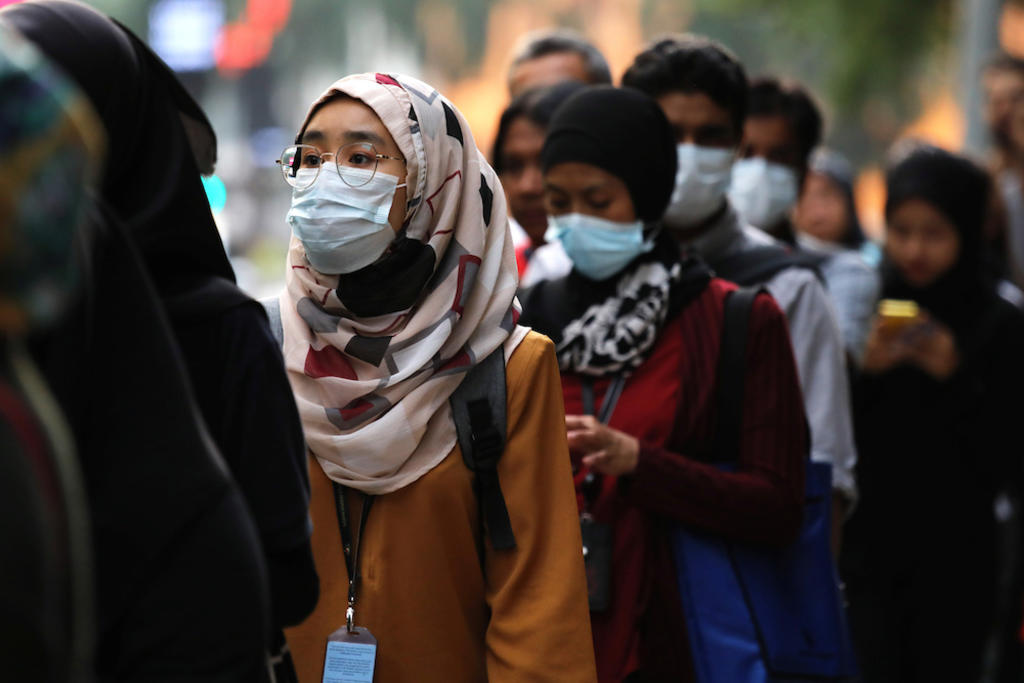Study Finds COVID-19 Can Stay In The Air For Hours And On Surfaces For Several Days
The study was conducted by researchers from the US National Institute of Allergy and Infectious Diseases.
A new study has found that the novel coronavirus can survive as droplets in the air and on surfaces for several days
The US government-funded study that was published yesterday, 17 March, saw scientists from the country's National Institute of Allergy and Infectious Diseases (NIAID) verifying that the COVID-19 virus is still infectious outside of the body, but slowly loses its viability over time.
The findings lend a clue into why the current pandemic is far greater than its predecessor, the Severe Acute Respiratory Syndrome (SARS) outbreak in 2003, despite both the coronaviruses having similar levels of survival on outside surfaces.
The scientists attempted to mimic how the virus stays in the air or settles on everyday household surfaces by coughing, touching, and sneezing
In their study that was published in the New England Journal of Medicine (NEJM), they found that the new coronavirus was detectable for up to two to three days on plastic and stainless steel, and for up to 24 hours on cardboard.
According to Reuters, the team also used a nebuliser to simulate the microscopic droplets that people make when coughing or sneezing, and found that the virus was detectable for up to three hours in the air.
The researchers also found that the COVID-19 performed similarly to the SARS virus in these experimental circumstances
But, as New Straits Times reported, their similar viability fails to explain why the current coronavirus pandemic has now infected close to 200,000 people and caused almost 8,000 deaths worldwide, while the SARS epidemic had infected much less at 8,000 and killed nearly 800.
"This indicates that differences in the epidemiologic characteristics of these viruses probably arise from other factors, including high viral loads in the upper respiratory tract and the potential for persons infected with [COVID-19] to shed and transmit the virus while asymptomatic," wrote the scientists.
The study hopes that their findings can offer guidance on how to help individuals avoid contracting the disease and provide information for more countrywide mitigation efforts
While it has attracted much attention, some critics have voiced their disagreement and said the study has overstated the airborne threat, also questioning whether the nebuliser had accurately imitated a human cough or sneeze.
However, as stated by AFP, the findings are in line with advice from public health professionals to keep practicing social distancing and frequent handwashing, cover coughs and sneezes, and regularly disinfect surfaces with cleaning sprays or wipes.



